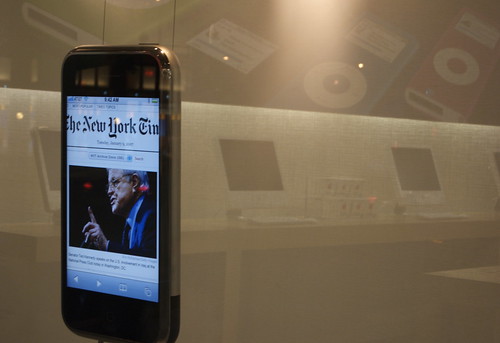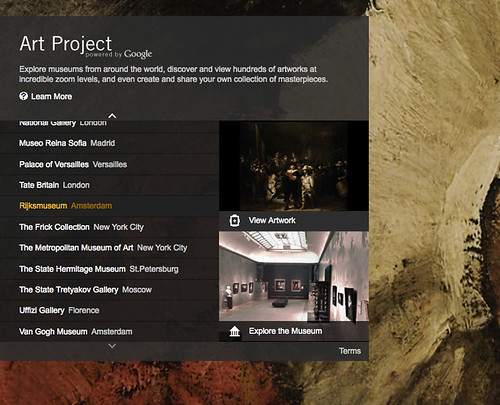Zotero, for your last minute citing needs
We know that this time of year, students are scrambling to finish up papers and projects. Often, people leave the citation to the last minute. If you need help citing your sources, consider using Zotero, a great citation management tool. Even though Zotero can do much more than just provide citations for sources – it actually walks you through your entire research process from beginning to end – you would do good to download a copy of the program and put it to use for your end of semester projects. There are no more Zotero workshops scheduled for this...
PsycINFO, Your Secret Weapon Database
The Baylor librarians often point undergraduate students to the Academic Search Complete database when they are first starting a research project. It’s no secret why we do – it’s a great multidisciplinary database, which indexes journals from all sorts of subjects from the sciences, social sciences and humanities. No matter your topic, you’ll most likely find some great research materials through there. But I’ve got a tip about a great database to use for a lot of topics, even though it’s not normally considered a multidisciplinary database: PsycINFO. That’s right, the gold standard of psychology databases, produced by the American...
5 Tips for Library Success
Spring semester 2016. Whether it’s your second semester at Baylor and you finally feel like you’re no longer a newbie, or your last semester at Baylor before heading out in to the real world, beyond the Baylor bubble, we’ve got some library tips for you to help make your research, study and life easier for you this semester. 1. Plan Your Research Papers Whether you’re a procrastinator or a planner, writing a research paper is a daunting task. There’s just so much that has to be done – selecting a topic, narrowing down a thesis, doing library research to find...
How to read a scientific abstract
The editor of Nature wrote a piece on the Huffington post recently about how to read a scientific abstract. A well-written abstract typically provides several basic types of information about a research project in concise arrangement, facilitating the reader’s ability to quickly ascertain the context, questions asked or purpose, results & methodology, interpretation and conclusions of one particular line of experimentation. The presentation style can vary widely from publisher to publisher, but each important element can often be identified by language cues or even more simply, by the order of the sentences. He then walks through an abstract, explaining...
Help! I need to put my paper in Chicago style!!!!
Are you trying to figure out Chicago (or APA, or MLA, or SBL) or any other style your final paper needs to be put in and don’t know how? Consider using Zotero to help you with this task, even if you have already typed your paper. The original post on Zotero in Library 411 says it all: “it will make your life a whole lot easier,” especially as you are juggling all the deadlines the end of the semester brings with it. Trust me (and the several students I’ve helped over the past two days), taking the 15 to...
Halloween in ARTstor
Want to see some great scary images for Halloween? Check out ARTstor, the fantastic digital image library that you have access to from the Baylor Libraries. First of all, check out the Farber Gravestone Collection, provided by the American Antiquarian Society. It contains “more than 13,500 images documenting the sculpture on more than 9,000 early American grave markers, mostly made prior to 1800” like this one: According to the ARTstor blog, “You can also do a search for “Day of the Dead” to find images of calacas, skeleton toys from Mexico. There are also some artists who were great...
Coffee reading and research
Depending on whether you heard the news over the summer, you may have been pleasantly surprised by the new addition to the Moody foyer when you arrived on campus this semester. Yes, Moody Library is now proud to house a Starbucks coffee shop in our entrance. If you’re a fan of all things java, here are a few other coffee-related library materials to give you some interesting reading while you’re downing your venti soy chai latte. We’ve got a lot of books about coffee hidden in our stacks – just take a look at a few of the...
Access to the New York Times
On March 28, 2011, the New York Times implemented a new policy regarding access to articles from their website, www.nytimes.com. That policy restricts access to 20 articles/month, unless you have a personal subscription to the paper New York Times or unless you set up a digital subscription. Because of questions we’ve received from Baylor faculty, students, and staff, we contacted the New York Times to see if they have a subscription model so libraries can set up a digital subscription for their constituents. They responded to us that they did not have such a model in place. However, if...
Google Art Project
If you haven’t already checked out Google Art Project, drop whatever you’re doing and head there now! –> www.googleartproject.com. With GAP, you can explore important museums from around the world. Go on a virtual tour and examine hundreds of works of art, many at amazingly zoomed levels (closer than the guards would let you get to the real thing!) You can also create and share your own collection of artwork from the galleries you visit. Creatively using Google’s well-known “street view technology” from Google Maps, you can virtually walk around the museums, seeing the art just as you would...
All the words fit to print – and then some most excellent stuff
I’m going to start this post with one of my favorite language stories. If I called you a “nice person” you’d feel that was a complement, right? Ah, but that’s by today’s standard. For Chaucer to call someone a “nice” person was to say that person was foolish, silly, or ignorant. Both Chaucer and Shakespeare could also use it to describe someone as “wanton” or “dissolute” (think of the Prodigal Son, here). The resource, par excellence, for exploring the past use of words in English is the Oxford English Dictionary (OED). Not only does this dictionary give you the...








